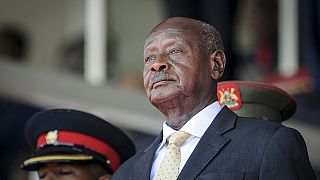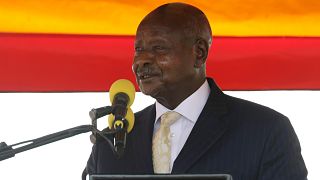Uganda
Kalangala, an archipelago of 84 islands with a population of 66,000, was shrouded in darkness and limited opportunities until 2015. That year marked the establishment of the Bukuzindu Power Plant, a hybrid 1.6 MW solar-diesel facility located on the main island of Bugala in Lake Victoria.
The impact of this reliable energy source has been significant. Islanders who mostly relied on fishing, have embraced farming, with many now relying heavily on the electricity provided by the plant. Daniel Kyeswa, a farmer, has been cultivating coffee since 2020, a crop that demands substantial energy for processing.
"Even if I have many bags and sacks of coffee, I just bring them here, they process it because power is available. And even to communicate is easy," says Kyeswa, highlighting the convenience brought by the power plant.
The increase in agricultural activity has had ripple effects on Uganda's coffee export volume, which rose by 25 per cent, reaching 5.83 million bags worth $867 million in the year ending July 2023. Compared to oil palm which generates at least $280,000 annually on Ssese islands alone, there are now over 1,000 coffee farmers in the district. According to the Alliance to Save Energy, producing a cup of coffee consumes about a kilowatt-hour of power.
With 1000 kilowatt of thermal and 600 of solar, the Bukuzindu station supplies 3,000 households
However, the solar power generation comes with its challenges, as Emmanuel Ongom, the Power Plant Operations and Maintenance Engineer at Bukuzindu, explains, "the downside to solar generation is storage. The energy is available when people don’t need it... And this creates a problem in itself. So, there is a mismatch."
For those living on islands without access to power, the struggle continues. Nammanda Nsubuga, who left volleyball to farm on the dark Bunyama island eight years ago, faces significant challenges. She must transport her produce to Bugala island for processing and storage, resulting in losses, especially with perishable items like milk.
"If government could subsidize bringing in solar panels and those inverters, everything else would be so easy for us... We have to give the milk away," laments Nsubuga, underscoring the economic losses due to lack of electricity.
Farmers are encouraged to tap into solar energy, but the high costs remain prohibitive for many individuals. On Bugala island, the Ssese Farm Institute showcases the benefits of solar power with its solar-powered irrigation system.
"When I started comparing the expenses, I discovered that the amount of money I use for a year I can now use it on solar more than five years," explains Stephen Nabasa, the Principal of Ssese Farm Institute, emphasizing the cost-effectiveness of solar energy
The government is advocating for mechanization in agriculture, recognizing it as the largest employer in Uganda. It has set up centers to help thousands of farmers across the country but still, energy is needed to operationalize and access the facilities. So, with only a few able to afford mechanized solutions, local leaders are calling for an expansion of off-grid solar projects.
"The district will be easier to manage. The government will generate more taxes as there will be more small-scale industries, there will be more irrigation schemes to us small-scale farmers and the rest," says Rajab Ssemakula, the Chairperson of Kalangala District, highlighting the potential benefits of increased access to electricity.
Under the Electricity Access Scale-up Project, at least 94 MW of PV capacity has been installed in the country of 46 million people, offering a glimpse of hope for off-grid solar solutions.
But access to electricity is increasing, now reaching over 42% of the total population. 82% is from renewable energy.
While expensive for individual farmers, the transformative impact of solar energy on agriculture cannot be overstated.
This report was produced with support from the African Centre for Media Excellence and Mott Foundation.












11:19
Cocoa is under pressure while East African economy is on the rise {Business Africa}
01:00
Pix of the Day: July 16, 2025
02:11
Witchcraft and politics: Uganda’s election season sparks supernatural surge
02:30
Morocco’s oases struggle to survive amid growing desertification
01:13
Uganda reopens border with M23-held eastern DRC
01:45
Empowering youth in agriculture could boost global economy, FAO report says